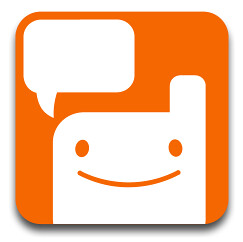As a new assistant principal, I've already made some small tweaks, but I'm still seeking to understand my new school, so I surely won't be very aggressive when I return to school on Monday.
Low-hanging fruit
 I oversee our school's SBIT (School-based Intervention Team, part of our RTI process) and want to ensure we do a better job of understanding the needs of students referred to this team. So, I've developed a quick survey that students can complete online or on paper to better understand their needs. This will help us personalize learning experiences and increase student learning.
I oversee our school's SBIT (School-based Intervention Team, part of our RTI process) and want to ensure we do a better job of understanding the needs of students referred to this team. So, I've developed a quick survey that students can complete online or on paper to better understand their needs. This will help us personalize learning experiences and increase student learning.
Harder to reach fruit
Our PLC's are at different places for a variety of reasons, so these goals will be differentiated.
- Use PLC's to answer, To what extent does our teaching emphasize the 4 C's (Communication, Creativity, Collaboration, Critical Thinking)? What percentage of our assessments require the 4 C's?
- Challenge PLC's to ensure we make the shift from acquisition of knowledge to a deeper understanding and application of skills and knowledge?

At the EdLeader21 Conference Tony Wagner stated, "Isolation is the killer of innovation." From the teacher side, we must provide time and resources for our PLCs to innovate. Additionally, our teachers are doing some great things within their classrooms, but too often they're doing things in isolation. I'd love to see our teachers publicize these great things and open their classrooms to their peers. In addition, I hope teachers will open their classrooms to their peers, so that we can continue to learn from each other.
Examine how we can turn professional learning opportunities into a collaborative and creative process by providing teachers with choices but ensuring it is student-driven and research-based. I'm exploring use of badges and a monthly challenge.
Planting seeds
Explore ways to develop project-based learning to ensure our students receive a coherent, viable and guaranteed curriculum that engages them in the 4 C's.
 Give students more control over their learning so students are engaged in their learning rather than merely complying with school, district and state requirements?
Give students more control over their learning so students are engaged in their learning rather than merely complying with school, district and state requirements?
Challenge PLCs to develop means of increasing student choice and examine how we assess our students with a move towards project-based learning, portfolios, and culminating assessments.
Explore ways that we can expand our internship and individual research programs
I challenge myself to constantly evaluate How students experience learning at Monticello High School? Is the teaching and learning aligned with our standards and the 4 C's?
Conclusion
While state standards and their corresponding tests represent hurdles, as educators if we follow the 4 C's (Communication, Collaboration, Creativity and Critical Thinking) we will Embrace Students, Inspire Learning and Innovate Opportunities.








